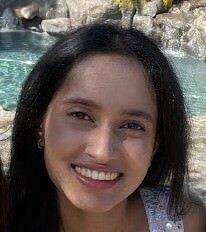Explosions of cheering resonated across the streets of Washington, D.C., when Barack Obama took the oath to be the 44th president on Jan. 20, 2009. Obama was the first Democratic president since Bill Clinton, and the first African-American president ever. Most Americans were eager for change.
This support, however, has lessened with time. Obama’s decline in popularity can be attributed to numerous problems—particularly continued war and a bad economy. The “time for change” did not satisfy liberal and conservative cravings alike.
Looking ahead, some people are doubtful about the next two years under the Obama administration and beyond. Government and MAP world history teacher Mike Davey said the United States’ decline began with 9/11 and will continue.
“It has not been a great decade for America,” Davey said. “9/11 changed all of the equations. Now that we have started a pre-emptive war [in Iraq], all bets are off.”
Also, some Americans have reservations about the ability of the nation to solve current problems. Will gay people, Muslims or other minorities eventually be accepted? Will the growing amount of liberal support shift the views on marijuana, abortion and stem cell research?
As for solutions, Davey emphasizes bipartisanship, increased taxes and continued innovation. He nevertheless admits he is pessimistic about the future.
“I think [America] is going to get more negative than positive,” Davey said. “The decade began with someone losing the popular vote and becoming president and ended in the worst recession since the Great Depression.”
Senior Amol Aggarwal too is uncertain of the government’s ability to solve problems.
“With the new Congress and the new vote in 2010, I don’t think they’re going to do that much, because there will probably be a deadlock between Republicans and Democrats,” Aggarwal said. “However, I don’t think it’s going to really stop progress.”
He nonetheless retains hope for the future of himself and his peers.
Aggarwal said, “We’ve had this sort of situation a million times before and we’ve always gotten through it, so I don’t really see any reason why they won’t this time.”
World history and government teacher Jerry Sheehy said he thinks America will clear the political hurdles that stand in its way.
“We still are, I believe, the most creative country. [The United States] is not perfect, but I do think we will figure a way to get out of this situation.”
Sheehy also realizes what needs to be done to help the country.
“I think the next two years will probably give us a strong hint for where we’re going to be going for the next 10 years, like how the Obama administration works with the change in the Congress,” Sheehy said. “Our Democrats and Republicans need to get some things done, to put aside their differences.”
Some would say that America doesn’t have much in the past decade to be proud of. Many argue that the 2000s, however, are not so much a failure as a lesson. Aggarwal, Sheehy and Davey agree that every citizen needs to make sacrifices and have hope if America is going to climb out of its economic and political rut.
“I think we can overcome anything as a country,” Sheehy said. “I’m encouraged by the students in my classes. I see these bright, young minds, and I think that you guys are on your way to becoming the generation that leads our society and our country. That gives me confidence.”


























